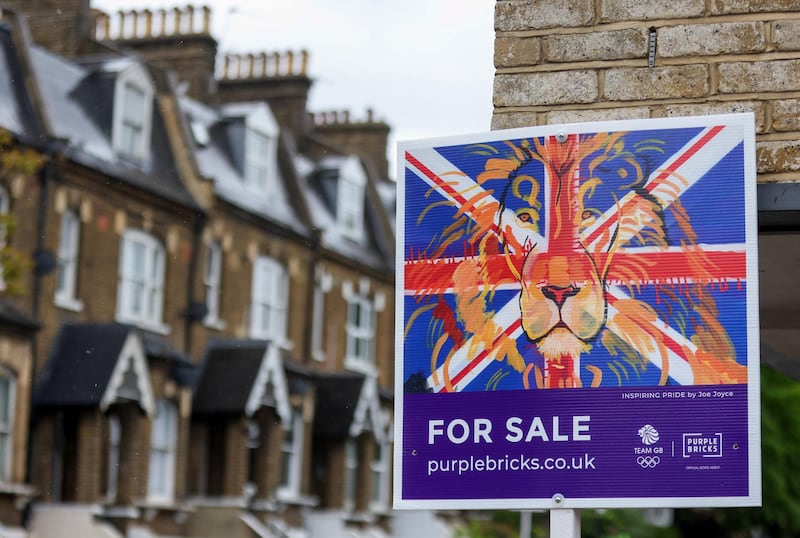British mortgage lending slumped in April, falling £8.2 billion ($11.59bn) from a record high a month earlier, reflecting the uncertainty in the market over the stamp duty holiday that was due to expire on March 30.
Despite the drop in mortgage borrowing to £3.3bn in April from the £11.5bn recorded in March, British lenders approved 86,900 home loans in April, up from 83,400 month-on-month.
“The recent variability is likely to reflect the reduction in the stamp duty tax, which was initially expected to end in March but has now been extended to the end of June,” the Bank of England said on Wednesday.
Britain's housing market soared last year after the first coronavirus lockdown created pent-up demand and Chancellor of the Exchequer Rishi Sunak's stamp duty break, unveiled last July, boosted activity in the sector even more.
In his March budget statement, Mr Sunak extended the tax break until June, with the first £500,000 of any property purchase in England or Northern Ireland remaining exempt from the levy. There is also a £250,000 tax-free allowance in place until the end of September.
British house prices jumped by an annual 10.9 per cent in May, the most in nearly seven years, and they look set to accelerate as buyers seek new homes after the pandemic, mortgage lender Nationwide said.
May’s average house prices hit a new record high of £242,832, up 1.8 per cent on April as the country’s housing boom continues.
While April’s mortgage approval level was below the November peak of 103,400, it was still above pre-pandemic rates, with 73,000 mortgages approved in February last year.
Bank of England deputy governor Dave Ramsden said the institution was carefully monitoring Britain's booming housing market because there was a "risk that demand gets ahead of supply and that will lead to a more generalised pick-up in inflationary pressure”.
Another deputy governor Sir Jon Cunliffe said the heightened activity in the property market was “driven mainly by the tax holiday”.
“We’ve seen very fast rises in house prices and transactions before tax holidays in the past. There are some signs that people are making different housing choices that may affect the future,” he said.
Meanwhile, Britons continued to pay down their debts in April, clearing a further £0.4bn in April, but this figure was less than the average over the past 12 months as the UK economy started to reopen allowing consumers to spend once again.








